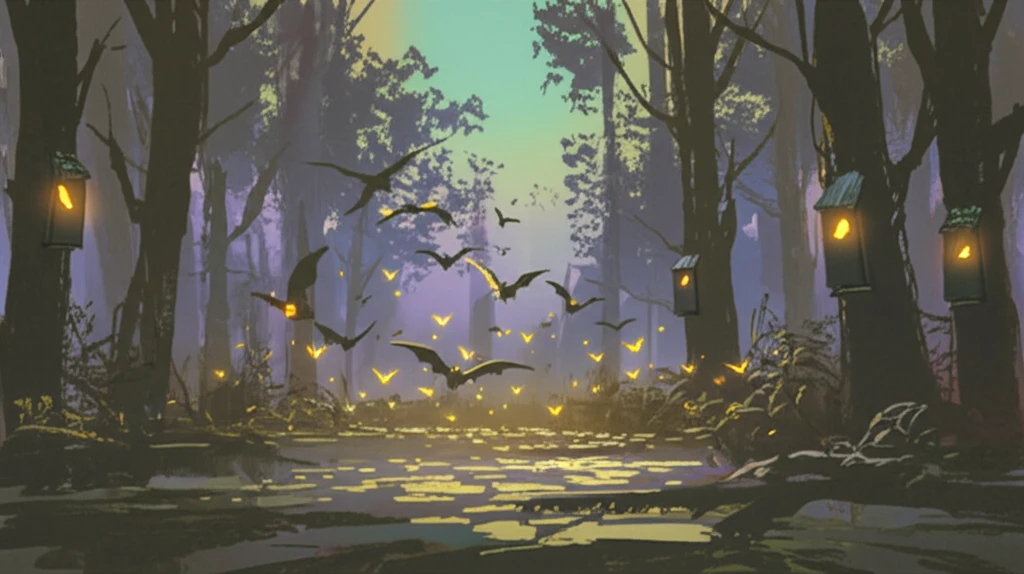
Bat Caves Aren't Just for Batman: How These Cozy Nest Boxes Could Save a Species
"Discover how innovative nest boxes are providing crucial shelter for the elusive forest-dwelling barbastelle bat and what it means for conservation efforts."
For many forest-dwelling creatures, the loss of trees with natural cavities—holes and bark crevices—is a significant threat to their habitat. These natural shelters, often created by woodpeckers, are essential for animals like bats, providing refuge from predators and sites for breeding and raising their young.
Unfortunately, the formation of natural cavities in trees is a slow process, often outpaced by forestry practices that remove dead or dying trees, which are prime locations for these shelters. This loss of habitat poses a serious challenge to the survival of bat populations.
To combat this, researchers have been exploring innovative solutions, including the development of specialized nest boxes that mimic the natural crevices bats prefer. One such project focuses on the forest-dwelling western barbastelle bat (Barbastella barbastellus), an endangered species that requires specific types of shelters to thrive. This article delves into the findings of a recent study on the effectiveness of these crevice-type nest boxes in providing suitable habitats for barbastelle bats.
Why Crevice-Type Nest Boxes are a Game-Changer for Barbastelle Bats

Traditional bat boxes often fall short when it comes to attracting barbastelle bats. These bats prefer narrow crevices and splits in broadleaved trees like oaks, beeches, and hornbeams. They often seek shelter under loose bark or in the forks of tree trunks, favoring dead or dying trees. This preference makes it challenging to provide suitable artificial shelters.
- Narrow Crevices: The design includes narrow vertical spaces (crevices) that imitate the natural cracks the bats prefer.
- Specific Dimensions: The boxes are carefully sized (80 cm high, 16 cm wide, with a 2 cm crevice) to accommodate the bats comfortably.
- Durable Materials: Constructed from sturdy boards, these boxes are built to withstand the elements and provide long-term shelter.
Ensuring a Future for Barbastelle Bats Through Innovative Conservation
The success of crevice-type nest boxes highlights the importance of understanding the specific needs of endangered species and tailoring conservation efforts accordingly. By providing suitable habitats in transformed forests, these innovative shelters offer a promising solution for the protection and study of barbastelle bats. This approach can be extended to other species facing habitat loss, paving the way for more effective and targeted conservation strategies.
